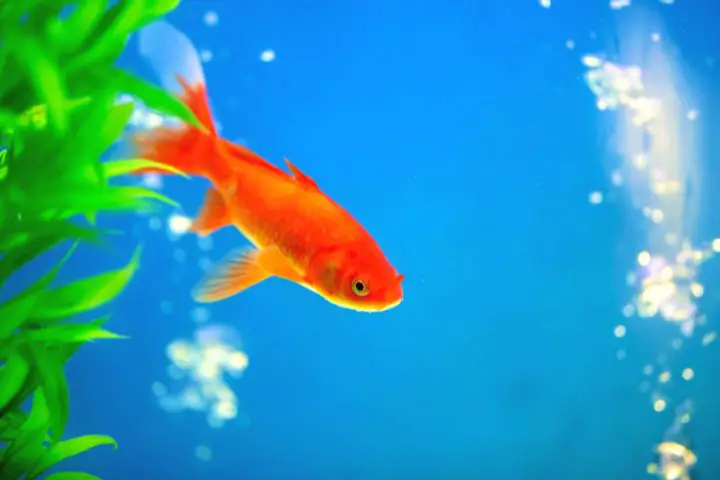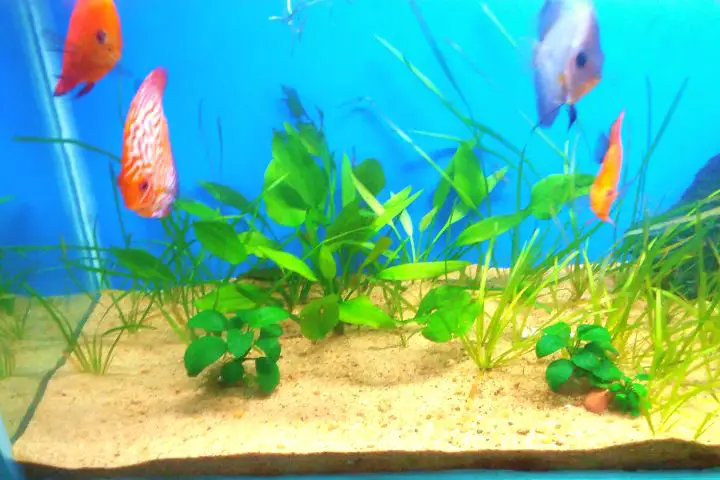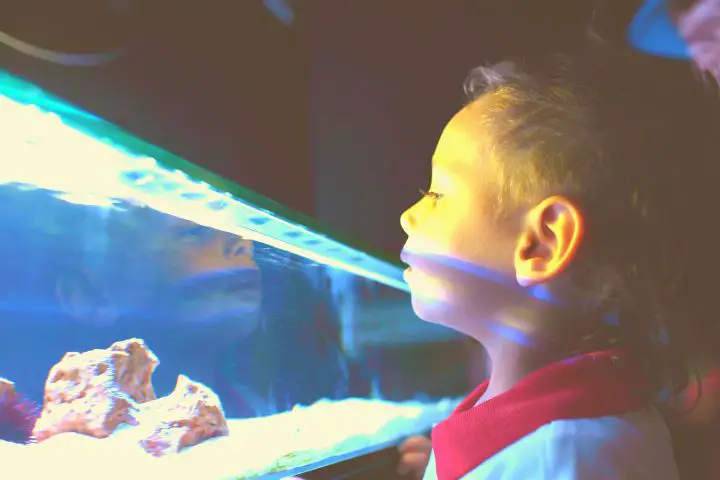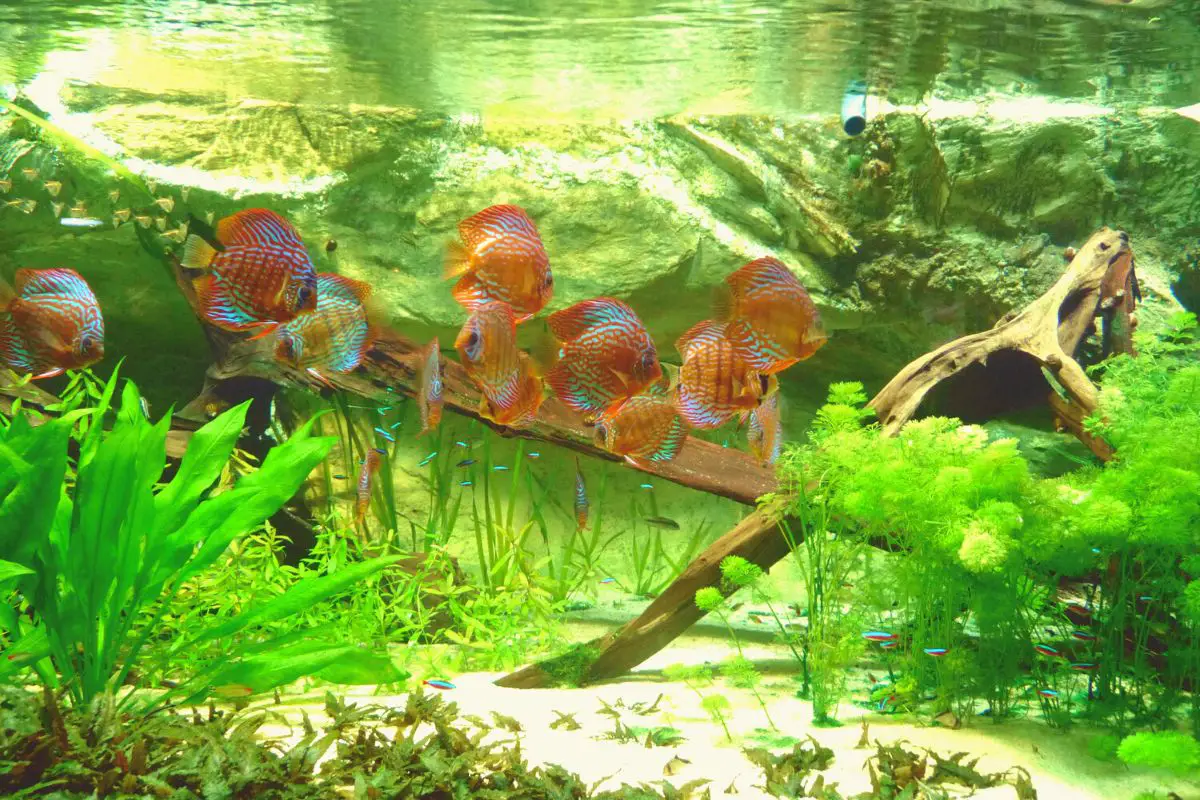Pool Filtration Sand for Aquarium | Happy Fish Tank Life
There are numerous benefits of using sand as a substrate for your aquarium.
First, sand can help fishes digest their food, one of its significant advantages. It is also a safer choice for your fish than gravel or pebbles, which can cause injuries to burrowing fish.
Cleaning the sand bed is also easier since dirt will stay on top rather than seeping through into the sand. But sand (especially some specialty sands) can be expensive.
If you are new to fish keeping or just want to save some money, you might want to consider using a cheaper alternative—pool filtration sand.
What are the benefits and drawbacks, and how do you use them? Let’s find out.
What is Pool Filtration Sand?
Pool filter sand is made of silica, and silica is made from ground quartz.
It has a smooth texture and comes in 2 or more shades of tan – or white/off white – or pinkish, or grayish color.
They are used in spa filters and large swimming pools to trap particles like dirt and other impurities in the water – and they can filter particles down to 20 microns, which is approximately 0.0008 inches. You can find them in home improvement stores and hardware shops – and even online.
Advantages of Using Pool Filter Sand in an Aquarium

It Is Cheaper
One of the reasons people are turning to this option is the price. You can buy a 50-pound bag at our local store for as low as $7. That’s a lot of sand! And you only need a few bags for a 75-gallon aquarium. If price is important to you, this is an economical choice.
Granular Size
Despite being coarser than play sand, pool filter sand is still finer than aquarium gravel.
Due to its fine texture, play sand tends to clump together. Having clumps in the substrate can result in anaerobic pockets, which produce harmful chemicals to fish and have a foul odor.
There are many crevices between aquarium gravel particles, which trap food and other debris. This can be removed by vacuuming the gravel.
The sand in pool filters isn’t so fine that it clumps. Instead, debris usually floats on top, gets swept into the filter, or can be swept away with a vacuum.
It Is Chemically Inert
This aquarium sand type is entirely inert; therefore, it will not affect the chemistry of your aquarium water. Because of this, it is suitable both for setups with hard or soft water.
Aesthetically Pleasing
Some people prefer this sand’s smooth texture and color over the “busy” look of sand in aquariums with pebbles or gravel. It also gives the aquarium a more natural look and can add depth to the décor of your aquarium.
Disadvantages of Using Pool Filter Sand in an Aquarium

It is Labor Intensive
One of the biggest drawbacks of pool filter sand is the prep work required before using it in your aquarium.
You must thoroughly clean the sand and remove all organic matter, including dust and debris. It can be time-consuming, but this is necessary unless you want to have a dirty-looking aquarium.
This will also depend on the brand of pool sand that you buy. To clean the sand, put it in a bucket, get a garden hose, shove it inside and let all the cloudiness come out.
Limited Color Options
In choosing pool filter sand, you are limited to one or two colors- mostly white/tan sort of color. Compared with some of the commercial sands, your options are limited. However, if you use it with a combination of pebbles or gravel, you can have more dynamism.
It Traps More Detritus
Unless you have a tank where the fishes are constantly sifting through the sand, it is impossible to get the sand to look neat. It is prone to algae and detritus accumulation.
A buildup of detritus in your tank could signify that nitrogen waste compounds are reaching harmful levels, which can be deadly to your fish.
Small Grains Means Sand Getting in Your Filters
Another worry is sand getting into your water column and winding in the intakes of your filters, especially if you have HOB (Hang on the Back) filters; those impellers stop because they start to get gummed up with sand. The easiest way to solve that is to use an intake sponge on your filter.
Pool Filter Sand vs. Aquarium Sand

Pool filter sands are alternatives to aquarium sands that may include specialty sands.
Pool sands are less expensive, but they are typically coarser and more prone to detritus accumulation than aquarium sands. Aquarium sands come in four categories: special plant sand, Live aquarium sand, marine and reef tank sand, and plain silica-based aquarium sands.
All of these are designed for specific applications and purposes. For example, plant sands for planted aquariums have ingredients not found on other sands and are designed as such to help the plants flourish.
Live sands, on the other hand, have beneficial bacteria that promote healthy nitrification and algae control in aquaria with live plants. Marine and reef tank sands have ingredients ideal for the aquarium’s pH and increase the water’s hardness.
Plain silica-based aquarium sands are less specialized and the same as pool filter sand, but they offer more flexibility with colors, and they are more expensive. Pool filter sands have no additives and are just sand.
Is Pool Filter Sand Safe for Aquariums?
Yes! It certainly is as a filter medium. However, there are different products for pool filters, and not all are safe to be used as a substrate for your aquarium. Some contain chlorine and other chemicals that can be harmful to fish.
Look for sands classified as quartz or silica-based if you plan to use inexpensive pool sand as a substrate.
If you do not need to grow plants in your aquarium, are a beginner fish keeper, or are looking to save some extra bucks, pool filter sands are worth a try. It is also an inexpensive alternative with some unique advantages as an aquarium substrate.
Frequently Asked Questions

Can I use pool filter sand in my saltwater aquarium?
The sand put into pool filters is washed, screened, dried, and is very pure quartz sand. It usually contains at least 99% pure quartz and is suitable for reef aquariums.
Can I put beach sand in my aquarium?
No, beach sand cannot be used in freshwater aquariums. Sand from beaches should never go in aquariums, much less in freshwater aquariums. Many harmful compounds in seawater contaminate the sand on the beach.






